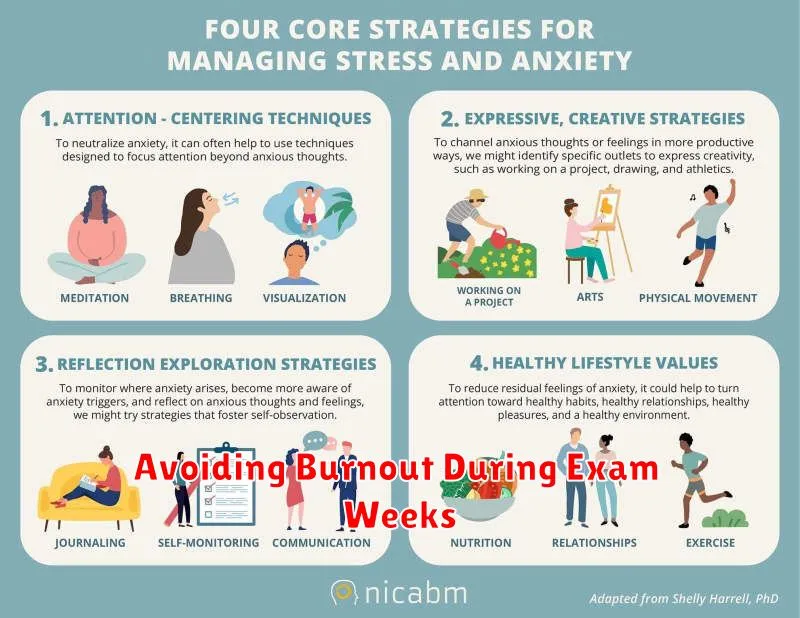University life can be exhilarating, a period of intellectual growth and personal discovery. However, the demanding academic workload, coupled with social pressures, financial concerns, and the transition to independent living, can create significant stress for university students. Effectively managing stress is crucial not only for academic success, but also for overall well-being and mental health. This article offers practical strategies and evidence-based techniques to help university students navigate the challenges of higher education and develop healthy coping mechanisms for managing stress.
From time management and mindfulness practices to building a strong support system and utilizing campus resources, learning to manage stress is a vital skill for university students. This article will explore a range of techniques, tailored to the specific stressors faced by students in higher education, empowering you to take control of your well-being and thrive in the demanding university environment. Understanding the sources of stress, recognizing the signs and symptoms, and implementing proactive stress management techniques will contribute to a more positive and successful university experience.
Recognizing Stress Symptoms
Stress manifests in diverse ways, impacting individuals both physically and mentally. Recognizing these symptoms is the first step towards effective management.
Physical Symptoms
Physical indicators can include headaches, muscle tension, fatigue, and sleep disturbances. You might also experience stomach problems, changes in appetite, and a weakened immune system.
Psychological Symptoms
Anxiety, irritability, and difficulty concentrating are common psychological responses to stress. Feeling overwhelmed, sadness, and loss of motivation can also signal underlying stress.
Using Campus Counseling Services
Campus counseling services are a valuable resource for managing stress. These services offer confidential support from licensed professionals. Counselors can provide strategies for coping with academic pressure, relationship issues, and other stressors common to university life.
They offer various services, including individual counseling, group therapy, and workshops. Reaching out is a sign of strength, not weakness. Utilizing these services can significantly improve your overall well-being and academic performance.
Incorporating Exercise and Healthy Habits

Physical activity plays a crucial role in stress management. Regular exercise releases endorphins, which have mood-boosting effects. Aim for at least 30 minutes of moderate-intensity exercise most days of the week.
Alongside exercise, prioritize healthy sleep habits. A consistent sleep schedule and sufficient sleep duration (7-9 hours) improve cognitive function and emotional regulation, making you better equipped to handle stress.
Nutrition also plays a significant role. A balanced diet provides the necessary nutrients for optimal brain function and stress resilience. Limit processed foods, sugary drinks, and excessive caffeine intake.
Time Management and Avoiding Overload
Effective time management is crucial for minimizing stress in university. Prioritize tasks and break down large assignments into smaller, manageable chunks. Create a realistic schedule that incorporates study time, social activities, and personal commitments.
Avoid overloading your schedule. Learn to say no to commitments that stretch you too thin. Schedule regular breaks and downtime to recharge. Balance is key to managing stress and maintaining well-being.
Staying Connected with Friends and Family
Social connection is crucial for managing stress. Maintaining relationships with loved ones provides a valuable support system during challenging times.
Regularly communicating with family and friends can offer emotional comfort and a sense of belonging. This can be achieved through phone calls, video chats, or in-person visits.
Sharing your experiences with trusted individuals can help you process stress and gain new perspectives. Don’t hesitate to reach out when you need support.
Avoiding Burnout During Exam Weeks

Exam weeks are a high-stress period for university students. Effective burnout prevention requires proactive strategies.
Prioritize tasks and create a realistic study schedule. Allocate specific times for studying, breaks, and sleep. Adequate sleep is crucial for both academic performance and stress management.
Practice mindfulness techniques such as deep breathing exercises or meditation to manage anxiety. Incorporate short breaks and physical activity into your study routine.
Seeking Support When Needed
University life presents unique stressors. Don’t hesitate to seek support when you need it. Reaching out is a sign of strength, not weakness.
Your university provides numerous resources. Counseling services offer confidential support and guidance. Academic advisors can help manage academic pressures. Student organizations provide peer support and a sense of community.

